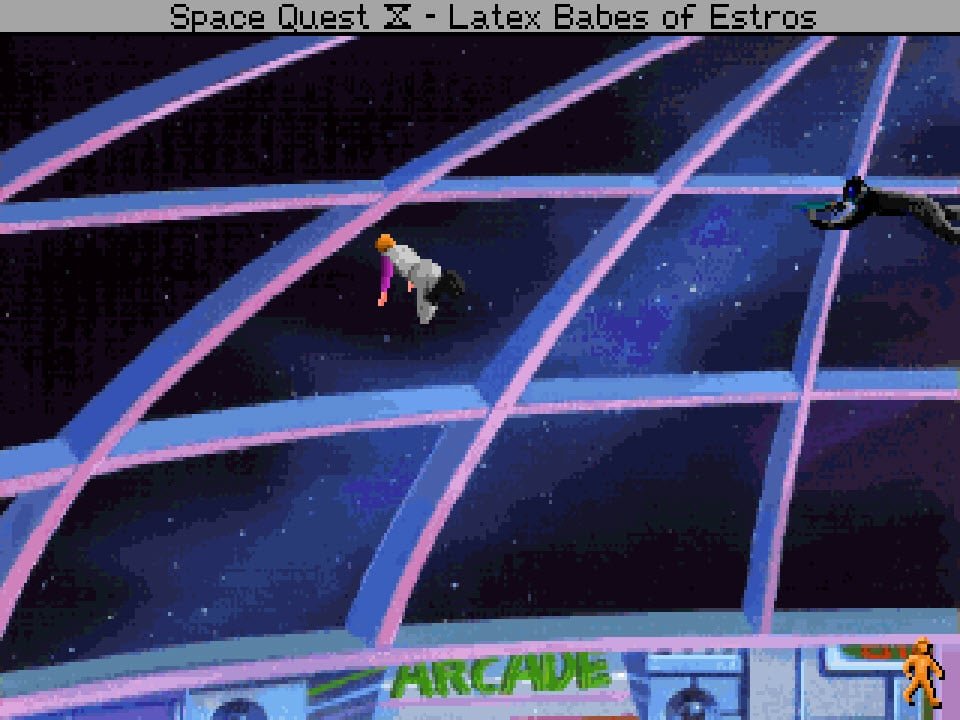While thinking about my idea for “Stop Messing Around With Your Phone Day“, I tried to come up with a more nuanced view of what was considered “messing around” versus “legitimate use”.
And one of those cases that seemed like it could go either way is the navigation/maps feature common to all phones these days. As talked about on my podcast with Saul of Hearts, this is often the “killer feature” for people. Especially those who are directionally challenged. Or who say they are.
The question I have for these people is: are you as challenged as you say you are? And, if so, is that something that can be changed?
Table of Contents
This is your brain on the grid
The question appears fraught. There is research to suggest that one’s sense of direction is in fact innate. Apparently, there are certain types of neurons in the brain that are responsible for knowing where you are. (“Grid cells” is my favorite vocab term here, in that it sort of reminds me of Tron.)

The implication is that these neurons are built up at an early age and stay with you for the rest of your life.
Perhaps.
This is your brain on Space Quest
I grew up playing computer adventure games by the venerable Sierra On-Line company. To say that they were a big part of my childhood only hints at their significance. One could argue that my sense of humor is 50% Monty Python, and 50% Space Quest.

Anyway, these games required you to map your location, to know where you’ve been and where you haven’t. In fact, early versions of King’s Quest came with a blank piece of grid paper where you could fill in where you found objects and other points of interest.

Could it be that by playing these games during my formative years that I developed a better sense of direction?
This is your brain on Google Maps
Out of all the important skills we were never taught in school—financial literacy, how to have satisfying and meaningful relationships, how to plan a career—we can now add another: sense of direction.
All of you, from those who can find their way in a blizzard to those who can’t find their way around their own home, think: when were you taught this skill? What classes did you take? How did you learn the skills you have? Certainly not through any active intentional process. You either had an innate ability, or you didn’t. And that’s about where we’ve stayed.
So is it possible to “practice” your sense of direction? Has anyone ever tried?
I have a great sense of direction, but when someone is leading the way, I get turned around entirely. One evening recently I went out with a friend to a new place (led there by said friend). Upon leaving the establishment, I didn’t even know what side of the street I was on. This was in downtown Portland, with a street grid, low-numbered avenues and alphabetized streets.
But I had relinquished my wayfinding skills because I didn’t need them. I had someone else helping me with where to go, and because of that, I didn’t know where I was.
Does this sound familiar?
What I am certain of is that by using your phone to navigate you around, you are not helping with your own sense of direction. In fact, you are likely making it worse.
This is because, like any other skill (such as running) it is a practice. You are born with innate skill (or not), and then you can choose to cultivate it. Or not.
With a navigational aid, you will get to where you need to go, but you learn nothing in the process. You do not take in your surroundings. You gain no skills aside from the ability to follow directions (which frankly, we learned enough of in school). And you become totally dependent on the aid; if it fails you, you are even more helpless, in that you hadn’t taken stock of where you were along the way.
Ultimately, however, the question of being directionally challenged just reminds me of math. Like directions, math is something that many (most?) people say that they aren’t any good at. But I suspect that cultural programming is really at work here. I believe that people say they aren’t good with directions (and then fulfill that prophesy) because it’s seen as somehow more acceptable than to know where you’re going. But as for why that might be, I admit that I can’t quite find my way to an answer.
But enough about me. Do you think you can learn to be better at directions?


